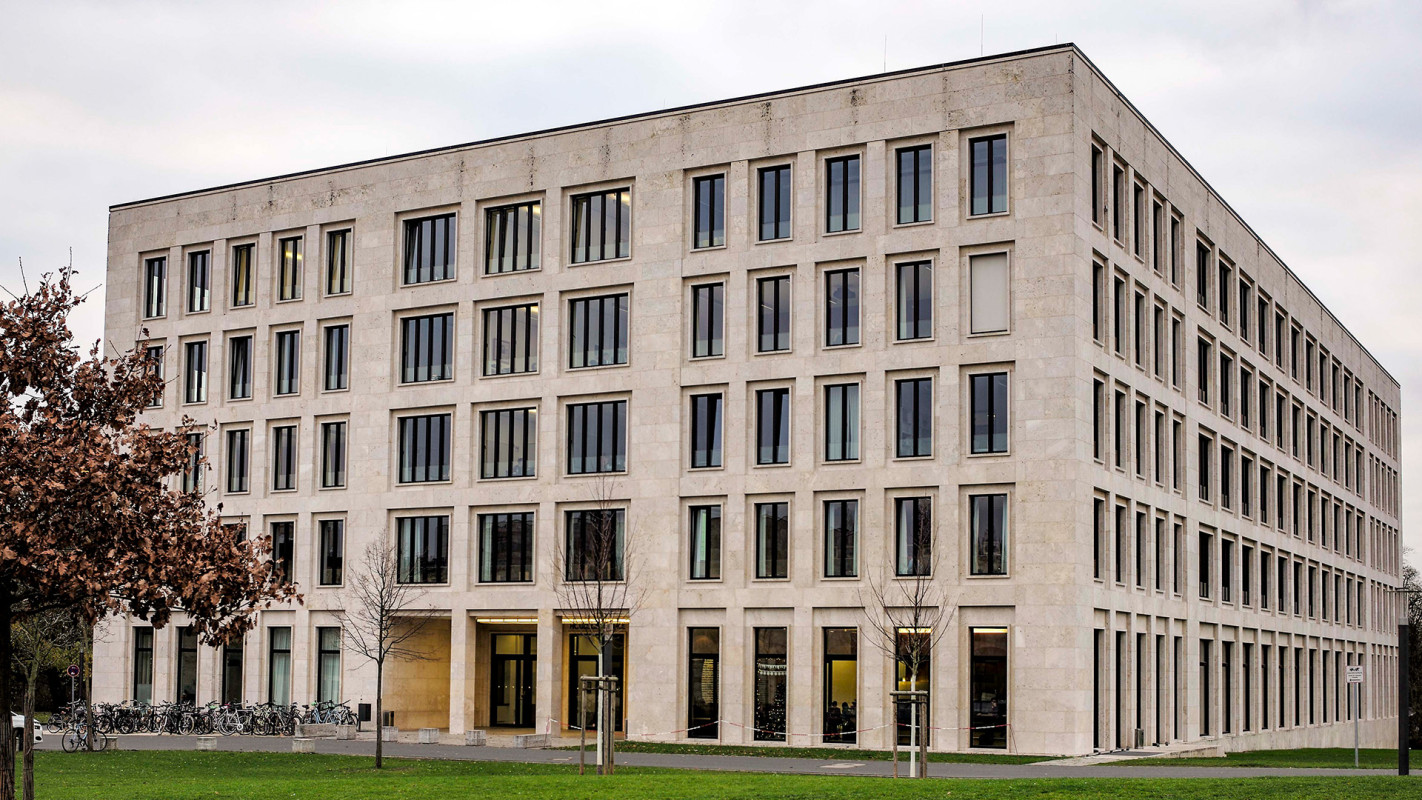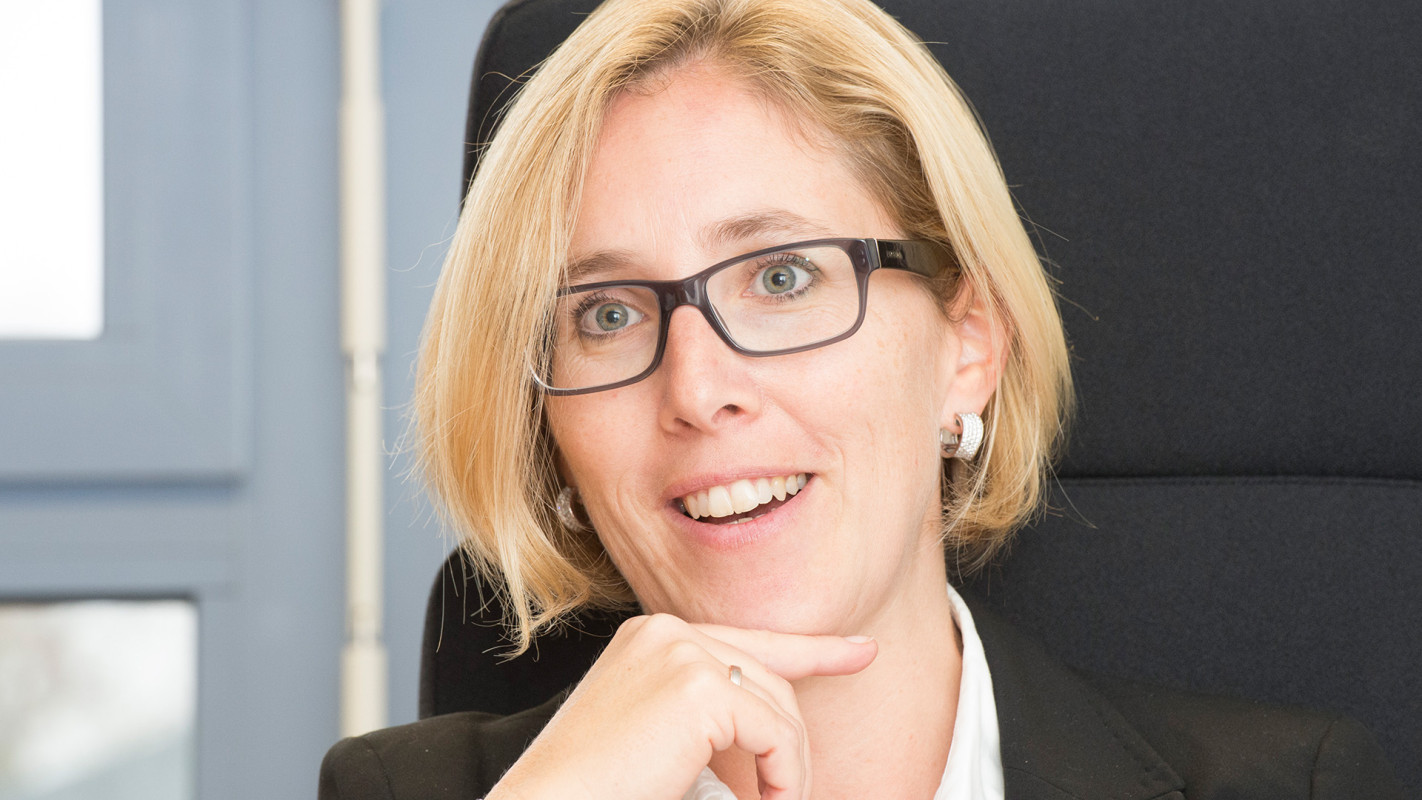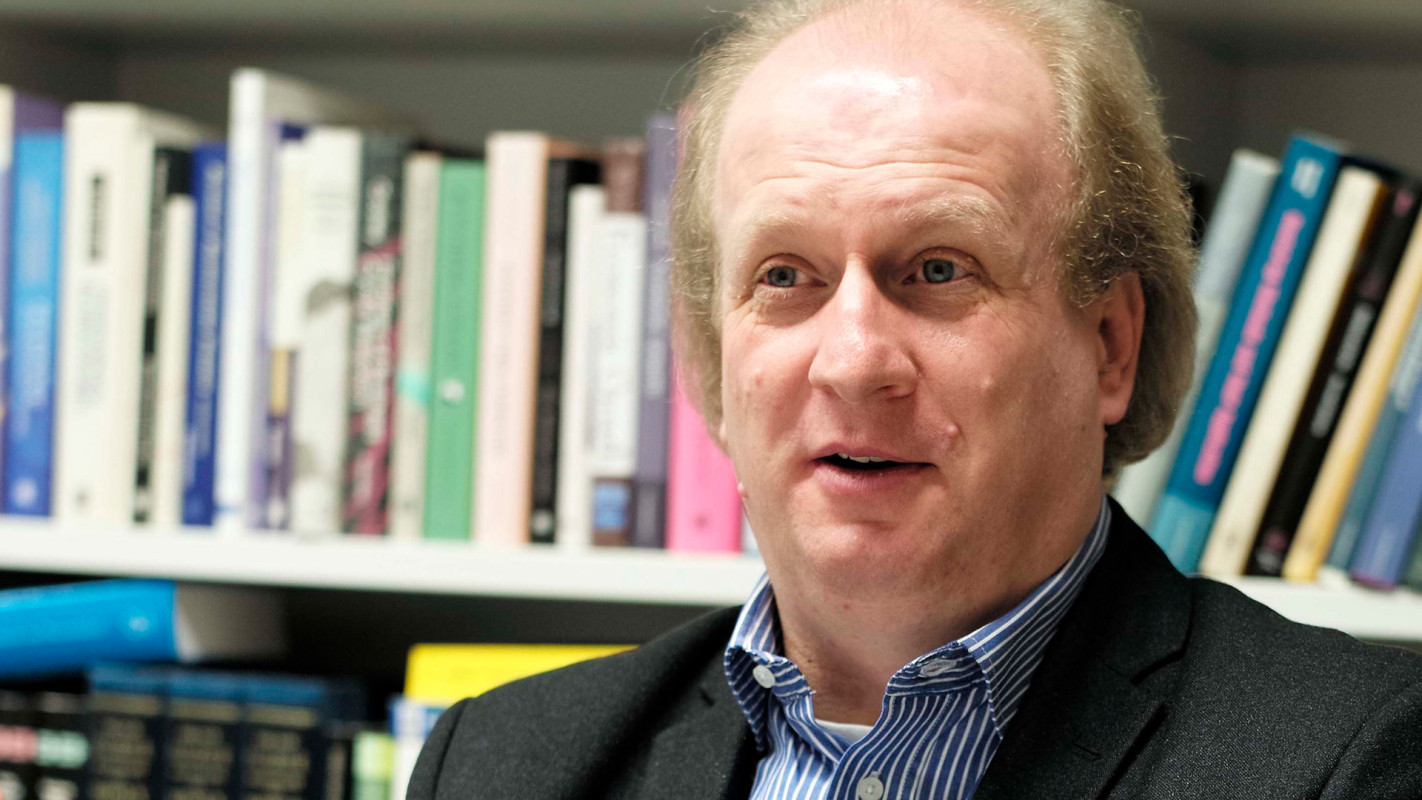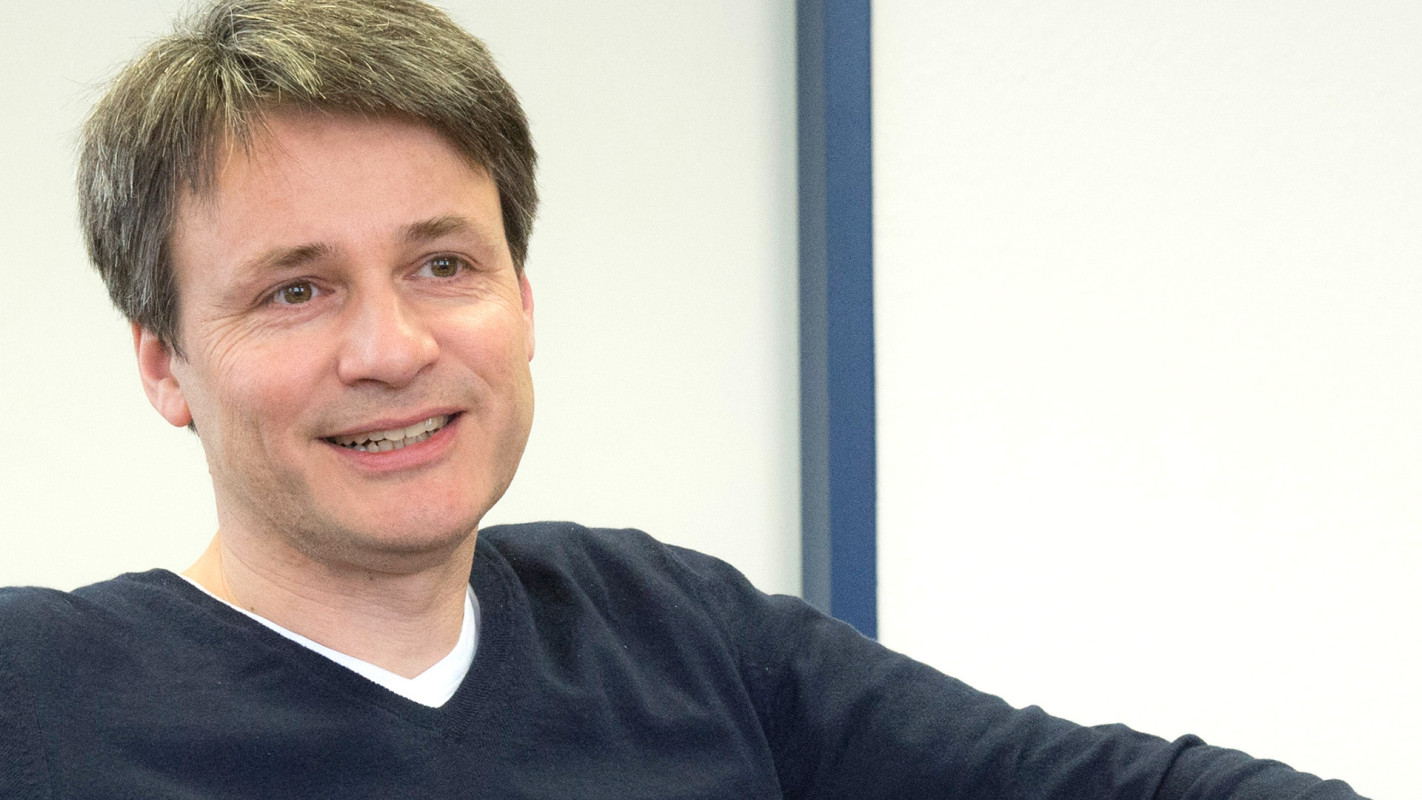An elite teaching institute at the heart of Germany's financial metropolis
The Graduate School of Economics, Finance, and Management (GSEFM) was created in 2008 as the result of an alliance between Goethe University Frankfurt, Johannes Gutenberg University Mainz (JGU) and TU Darmstadt. The GSEFM has since grown into one of the leading European educational centers at the graduate level in the fields of economics, finances and management. The GSEFM offers a broad range of doctoral programs that are based on the Anglo-American models. The school also benefits from the extensive interdisciplinary expertise available at the three partner universities. The research and teaching posts obtained by graduates of the GSEFM in Germany and abroad demonstrate that the concept works.
When Prof. Christina E. Bannier talks about the GSEFM her enthusiasm is tangible. “All the students accepted into this program subsequently have a clear competitive advantage on the job market.” Bannier, the Professor of Corporate Finance at JGU, is convinced that, in her words: “This form of graduate training has a bright future.”
The project, set up jointly by Goethe University Frankfurt, Johannes Gutenberg University Mainz (JGU) and TU Darmstadt, originated as the Research Training Group ‘Research Training Program in Finance and Monetary Economics’ funded by the German Research Foundation (DFG), and as the PhD in Economics program of Goethe University. “None of our universities has enough students studying Business and Economics at doctorate level to make it justifiable to offer a suitably broad range of courses. It would not be possible to provide this sort of thing in Frankfurt, Mainz or Darmstadt alone on a permanent basis.” As a result, the focus turned to combining the resources available. “Goethe University Frankfurt was the first in 2001 to set up a corresponding research training group, which proved to be extremely successful. We were able to use this as a basis to build on."
The demands placed on students are high. “The Business Management and Economics disciplines are becoming ever more exacting. There are a great number of different methodologies that are now used within them and our students need to master all of them.” The two-year course at the graduate school makes special provision to take this into account. “The students are confronted with an awful lot in the first year in which fundamental aspects are dealt with. The core business and financial methods are taught along with statistics and mathematics. However, this is not just a repetition of what they have already learned. The courses are very high level and incorporate the latest research. The program is very rigorous and requires complete dedication on the part of the students.”
The GSEFM offers five doctoral programs in the fields of Economics, Finance, Law & Economics, Management and Marketing. Students choose in which field to specialize in their second year. “The courses become more particularized then. They are also very time-consuming for us teaching staff as we have to prepare them very carefully.”
Classroom numbers are deliberately kept small by limiting each course to a maximum of 20 participants. “Our classroom sessions are very interactive - various ideas are floated and thrown open to discussion. And I personally also benefit from this.” After completing the two years of the course program, students begin work on their doctoral dissertations. "Up to this point of time, we will have already provided our students with an outstanding education. Then comes the dissertation, so that their own independent research activities are added to the mix.”
Bannier is personally familiar with both Goethe University Frankfurt and JGU. She only moved from the Main to the Rhine in 2013. “My decision to come to Mainz was definitely influenced by the presence of the graduate school,” she says. “A valuable academic community has been created that I can interact with.”
For Bannier, it is also quite apparent how the three universities complement one another. “Frankfurt works a lot with the financial markets, with asset pricing. TU Darmstadt looks at many of the issues from a business engineering perspective. We in Mainz are experts in corporate financing and regulatory issues in the political sector.”
In Frankfurt, Prof. Michael Binder, Ph.D., concurs completely with the views of his Mainz-based colleague. "It was the right thing to do to establish our graduate school,” says the Professor of International Macroeconomics and Macroeconometrics, whose office is in the House of Finance on the historical Campus Westend of Goethe University. Outside the campus, the massive banking towers of the financial hub rise into the heavens. The House of Finance, which also is home to the GSEFM, has a mere five floors, leaving it dwarfed by the neighboring skyscrapers, even though its imposing architecture is truly impressive.
"Our location provides us with a massive competitive advantage,” emphasizes Binder, who is also chairman of the GSEFM board. “This advantage does not simply exist on paper; it is very real and exploited by us, for instance through our research-oriented involvement with many different sectors. Among these are our weekly colloquiums and seminars held in collaboration with institutions such as the European Central Bank and Germany’s Bundesbank, which students of the graduate school are also welcome to attend.”
Some 60 professors at the three Rhine-Main universities contribute to the work of the graduate school. “When it comes to both teaching and dissertation supervision, we need them all because we want to be able to offer students many opportunities for specialization.” The GSEFM model works, as a consideration of its roughly 250 students shows. “About half are international students, whereby a particularly high proportion comes from China and Iran. 50 different nationalities are represented at the GSEFM." It is clear that the school has a considerable power of attraction.
“Undoubtedly the reputation of Frankfurt as a major international financial center plays a significant role here. By studying in Frankfurt, our students are particularly well placed to get a foot in the door when it comes to discovering monetary and financial market policy-making at the source. So, for example, those who can prove themselves during an internship at the ECB will of course have a massive advantage when it comes to finding a job later.” However, Binder is quick to stress that: “Although we have contacts with the large financial institutions, the research we carry out is not contract research. Everyone at the GSEFM needs to be and remains independent.”
“When it comes to determining the subsequent success of our doctoral candidates, we first consider the academic world: Who is making a name for themselves at eminent universities? This is what weighs heaviest with us and we seem to be doing rather well in this respect.” Binder points out that graduates of the GSEFM are now working at the universities of Cambridge and Oxford and also at the prominent INSEAD Business School, among other places. “Those with jobs in the research departments of central banks, the International Monetary Fund or the World Bank also help put GSEFM in the spotlight, although to a different extent to teaching and research placements at leading universities.”
In Darmstadt, it is Prof. Volker Nitsch whose particular focus is the GSEFM. The holder of the Chair of Law, Management and Economics at TU Darmstadt is happy to confess that the graduate school, as a collaborative project, is not unique in Germany - at the same time, he points out: “Alliances of this kind often have a rather artificial feel to them. Most of them just offer selective courses; so a specialist from one of the participating universities might offer a block course or a seminar on the subject ‘XY’ and the doctoral candidates then travel to the venue to attend these. What are often lacking though are consistent, well structured and well planned programs that are provided at one single location. And this is exactly what our graduate school does.”
TU Darmstadt also makes its own contribution to the already extensive curriculum of the GSEFM: Prof. Volker Caspari specializes in the historical development of economic theories. “Economists are sometimes accused these days of working in too abstract or mathematical a manner,” adds Nitsch. “If you’ve read Keynes, so the assumption, then you should have been able to predict the banking crisis. My colleague Caspari is well versed in the standard reference works of economic theory. He is able to bring the historical perspective to bear." Caspari has close ties with Goethe University in Frankfurt as he studied and taught there. “He is particularly active in our graduate school teaching program.”
Nitsch himself is supervising a GSEFM doctoral candidate from China who works in his area of expertise, international economics. “We support the graduate school in a number of different ways,” he adds. “It doesn’t always have to be through teaching. When I have a paid post available I can offer to a doctoral student, for example, I can recruit either a male or female applicant. I can also have a look at what’s available in the pool of outstanding young international candidates at the GSEFM. Offers like this give them the chance to finance their doctoral studies.”
Nitsch is also pleased that, in addition to collaborating on individual projects, the institutes of higher education in Frankfurt, Mainz and Darmstadt recently joined forces through a trilateral agreement and the group is now called the Rhine-Main Universities alliance. He considers that the graduate school represented a foretaste of what was to come: “Ability to participate in meetings combined with the short commute for colleagues at the GSEFM are aspects that we have been benefiting from for years. We are a living example of how superbly this type of inter-university cooperation can work. All three of the cooperation partners make important contributions and at the same time profit enormously from this joint project.”







